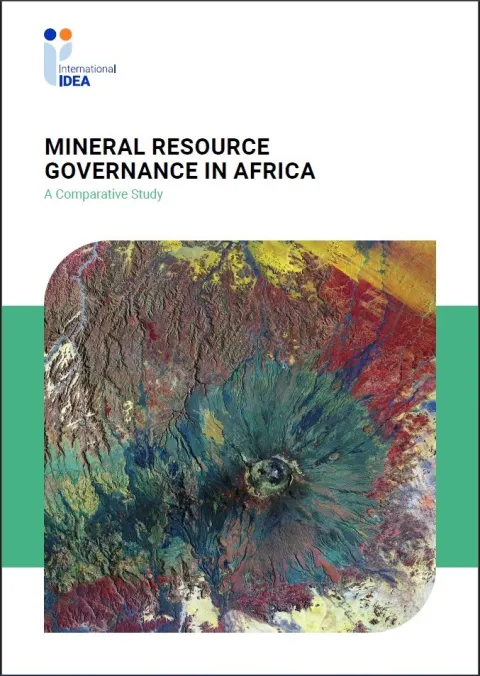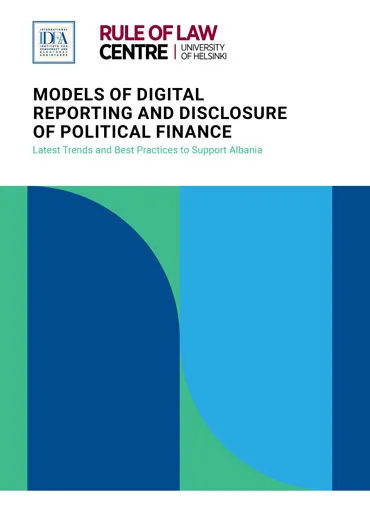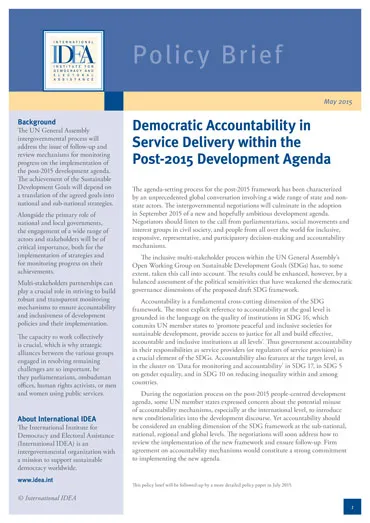Democratic Accountability in Service Delivery: A Synthesis of Case Studies
Democratic accountability refers to the many ways in which citizens, political parties, parliaments and other democratic actors can provide feedback to, reward or sanction officials in charge of setting and enacting public policy.
Well-functioning accountability mechanisms are believed to provide incentives for governments to work in the best interests of citizens. When it comes to service delivery, the critical role of accountability is still a matter for debate. Only a few empirical studies have explored the links between democratic mechanisms and public services.
In 2010, International IDEA’s Democracy and Development Programme embarked on efforts to stimulate greater debate and increase knowledge about the impact of democratic accountability on services. The long-term aim is to identify the specific areas by which accountability arrangements result in stronger incentives for governments or service providers.
This Discussion Paper serves as an introduction to seven working papers (available for download below) that describe the projects in which some of those connections are analysed. The selection reveals that in the countries studied, formal democratic channels for accountability are subject to a number of challenges, including weak and sometimes non-credible political institutions.
Details
Contents
1. Introduction
2. Exploring the concept of democratic accountability
3. Analysing case studies on accountability
4. Concluding remarks
Tracking Textbooks for Transparency: Improving Accountability in Philippine Education
Aries A. Arugay
Voices from the Ground: Does Strengthening Demand for Better Services Improve Supply?
Courtney Heck and Courtney Tolmie
Learning from the Successes and Failures of the West Cliff Flats Residence Association
Rebecca Hinely, Barak D. Hoffman and Orlean Naidoo
The Role of Strategic Alliances between NGOs and Local Media in Making Health Care Services Responsive to the Poor in Makassar City
Darmawan Triwibowo
Why Politics Matters: Aid Effectiveness and Domestic Accountability in Uganda and Zambia’s Health Sectors
Leni Wild and Pilar Domingo
Give us feedback
Do you have a question or feedback about this publication? Leave us your feedback, and we’ll get back to you
Send feedbackDemocratic Accountability in Service Delivery: A Synthesis of Case Studies

| Total views | 4094 |
|---|---|
| Downloads | 9 |
| Rating |
Give us feedback
Do you have a question or feedback about this publication? Leave us your feedback, and we’ll get back to you
Send feedback






